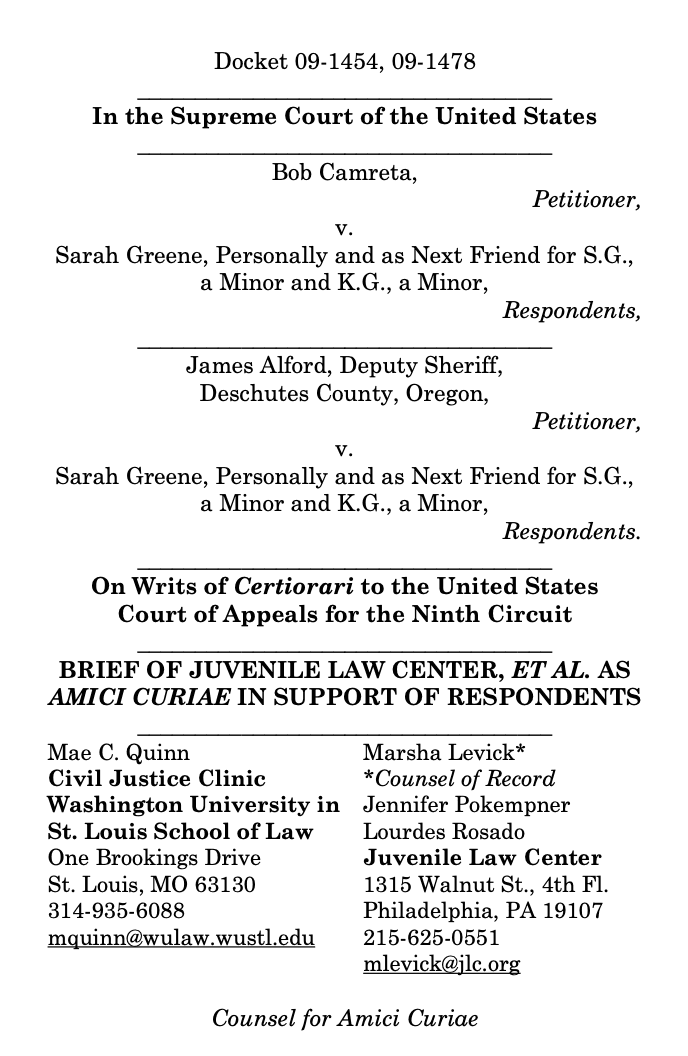
Summary of Argument
The Ninth Circuit correctly found that the seizure and questioning of nine year old S.G. by Petitioners Camreta and Alford was an unconstitutional seizure in violation of the Fourth Amendment. The Ninth Circuit’s decision is narrowly crafted to address the specific circumstances of this seizure and is fully consistent with this Court’s Fourth Amendment jurisprudence.
The touchstone of the Fourth Amendment is reasonableness, generally demonstrated by a warrant, probable cause or consent. Narrow exceptions to these requirements have been carved out, including exigent circumstances and special needs searches. Brief investigatory stops have also been deemed permissible without a warrant or probable cause. None of these exceptions are present here, and any divergence from a traditional Fourth Amendment analysis is unjustified. Nine year old S.G. was improperly removed from her school classroom, taken to a closed office by Petitioners without a warrant, probable cause or consent, and then asked repeatedly about the most intimate details of her private family life for two hours. S.G. was not free to terminate this encounter nor was this the type of brief and non-intrusive encounter categorized as a Terry stop.
First, the special needs exception to the Fourth Amendment is inapplicable. Reduced Fourth Amendment scrutiny of searches and seizures of students is permissible to further the purposes of maintaining order and discipline in the school environment so that children can learn. School officials were not involved in S.G.’s seizure, and S.G. was suspected of no violation of school rules. Rather, the seizure was pervaded by a law enforcement purpose—the criminal investigation of S.G.’s parent. Second, neither the circumstances surrounding the seizure nor the actions of state officials subsequent to the encounter indicate that emergency action was required to safeguard S.G.’s safety and well being. No exigent circumstances were present.
Finally, consent to the seizure was neither sought from nor provided by either S.G. or her mother. While schools have some in loco parentis authority, the school had no authority to substitute its consent for that of S.G. or her mother here.